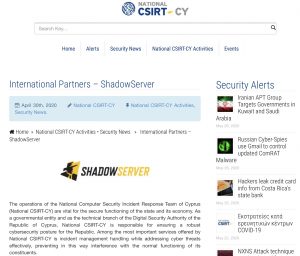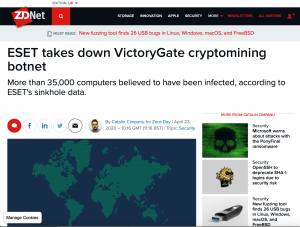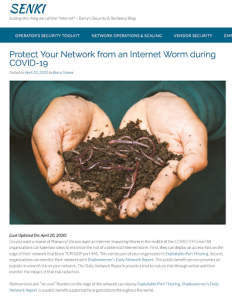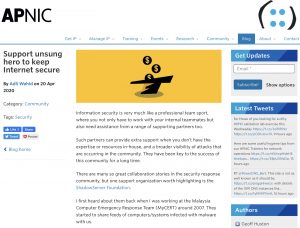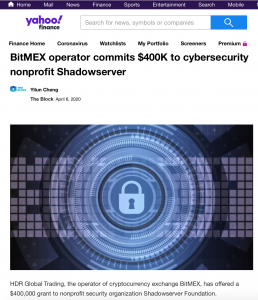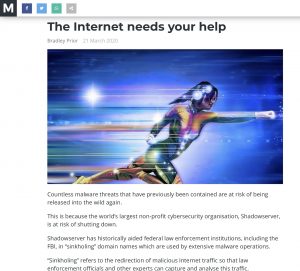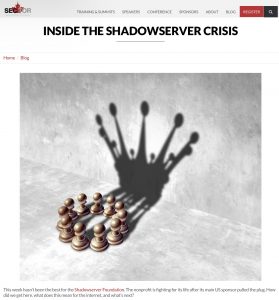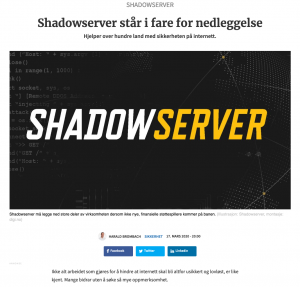International Partners - Shadowserver
The operations of the National Computer Security Incident Response Team of Cyprus (National CSIRT-CY) are vital for the secure functioning of the state and its economy. One of the most valuable operations of National CSIRT-CY which contributes greatly to proactive security is the processing of threat intelligence, daily reports and feeds received by external sources concerning current threats and malicious internet activity. One such external source is Shadowserver, a platform which provides valuable information and insights relating to emerging security threats. The main goal of the Shadowserver Foundation is to foster collaboration and to contribute to a culture in which the cybersecurity industry delivers ever greater service and capability. Shadowserver collaborates with major organizations such as Europol’s European Cybercrime Centre (EC3), Trend Micro, and the European Organization for Nuclear Research (CERN). Shadowserver is one of National CSIRT-CY’s primary threat intelligence sources. Close collaboration with the Shadowserver Foundation offers valuable operational intelligence enhancement. This puts National CSIRT-CY on the map of organizations and other entities which share the privilege of using Shadowserver’s services.


